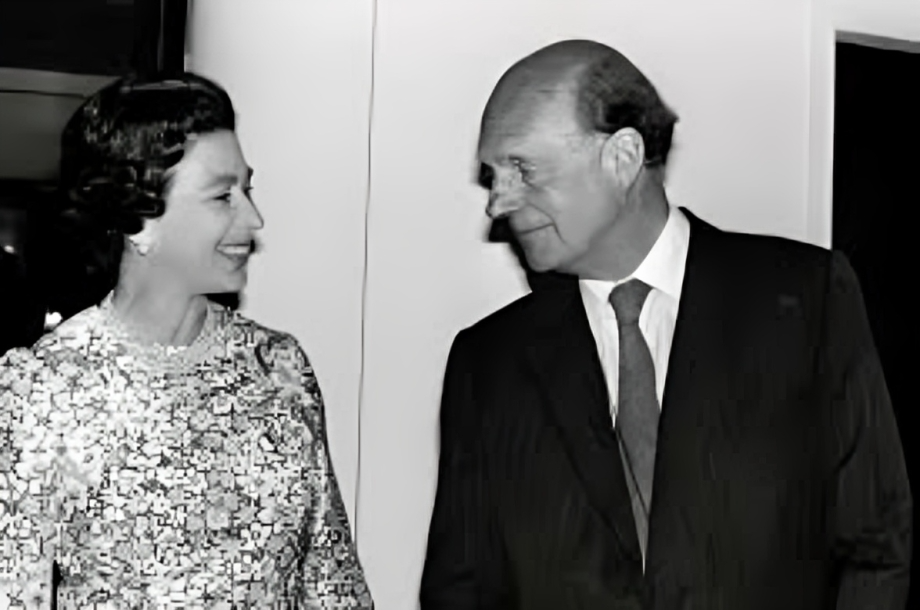
Unveiling Lord Altrincham A Glimpse into His Life and Legacy
Lord Altrincham, a name that sparks curiosity and intrigue, played a pivotal role in shaping the modern British monarchy. His life was marked by bold opinions and an unyielding commitment to progress. At a time when the royal family seemed untouchable, he dared to voice criticisms that would forever alter public perceptions of royalty.
But who exactly was Lord Altrincham? What drove him to challenge traditions steeped in centuries of history? Join us as we delve into his early years, rise to prominence, and the lasting impact he made on society. Whether you’re familiar with his legacy or just discovering it now, there’s much more than meets the eye when it comes to this fascinating figure. Prepare for an exploration of passion, controversy, and change—elements that define Lord Altrincham’s remarkable story.
Early Life and Education
Lord Altrincham, born in 1912 as the son of a well-connected family, experienced privilege from a young age. Growing up in an aristocratic household, he was exposed to the complexities of British society early on.
His education began at Eton College, where traditional values intertwined with intellectual rigor. Here, he developed critical thinking skills that would later shape his views.
After Eton, he pursued higher education at Magdalen College, Oxford. This prestigious institution further honed his analytical abilities and deepened his understanding of history and politics.
The combination of elite schooling and familial influence set the stage for his future endeavors. It laid the groundwork for a life marked by bold opinions and challenging established norms within British culture.
Rise to Prominence
Lord Altrincham’s rise to prominence was nothing short of remarkable. It began with his sharp insights into British society and the monarchy’s role within it. His articulate approach quickly garnered attention.
As a journalist and writer, he had a knack for addressing issues that resonated with many citizens. He wasn’t afraid to challenge the status quo, which set him apart from his contemporaries.
His landmark article in 1957 stirred controversy and sparked debates across Britain. This piece not only highlighted flaws within the royal family’s public image but also called for modernization in their practices.
The audacity of Lord Altrincham’s views earned him both admirers and detractors. Yet, this duality played a crucial role in establishing his influence during an era marked by change.
His unique perspective on tradition versus progress made waves far beyond journalism, impacting political conversations as well.
Controversial Criticisms of the Royal Family
Lord Altrincham wasn’t afraid to speak his mind. His frank criticism of the royal family shocked many in post-war Britain.
He believed the monarchy needed modernization to stay relevant. In 1957, he published an article that openly challenged their traditional roles and demeanor. This was unheard of at the time.
Altrincham’s most striking point was about accessibility. He argued that the royals seemed distant and out of touch with ordinary people. His words ignited a heated debate across newspapers and dinner tables alike.
Many viewed his critiques as a necessary wake-up call, while others saw them as disrespectful attacks on national figures. The backlash was fierce, but it also opened doors for deeper discussions about monarchy in modern society.
This period marked a turning point for public perception of royalty. Altrincham’s criticisms lingered long after they were voiced, forever altering how we view the institution today.
Repercussions and Impact on British Society
Lord Altrincham’s candid critiques reverberated throughout British society. His public statements challenged the status quo, prompting discussions that had long been considered taboo.
The media frenzy surrounding his opinions sparked a wider debate about the monarchy’s role in a modern democracy. Many began to question whether traditional structures should adapt or remain static.
Public sentiment varied significantly. Some hailed him as a hero for advocating reform, while others viewed him as an enemy of tradition. This polarization highlighted growing societal tensions regarding class and privilege.
Moreover, his actions encouraged newfound transparency within royal discourse. As citizens demanded more accountability from their leaders, Lord Altrincham became an unlikely catalyst for change.
His influence extended beyond criticism; he inspired younger generations to engage with political issues and challenge authority figures more openly than ever before. This shift marked a pivotal moment in British history, redefining the relationship between monarchy and citizenry.
Legacy and Contributions to Modern Monarchy
Lord Altrincham’s influence on the modern monarchy is profound. His candid critiques initiated conversations that challenged traditional norms. This sparked a transformation in how royal family members interacted with the public.
He advocated for transparency and relevance, urging the monarchy to evolve. The idea of a more relatable royal image took root during his time, paving the way for subsequent changes.
With his insights, he helped shift perceptions about privilege and duty. He emphasized accountability, encouraging royals to engage openly with societal issues.
This legacy resonates today as younger generations expect authenticity from their leaders. Lord Altrincham’s vision laid groundwork for a monarchy striving to remain relevant in contemporary society.
His contributions continue to inspire ongoing discussions about modern governance and leadership within royal circles. The echoes of his thoughts can still be felt throughout Britain’s evolving relationship with its monarchy.
Personal Reflections on Lord Altrincham’s Influence
Lord Altrincham’s influence resonates beyond his time. His bold critiques of the monarchy sparked discussions that were previously considered taboo. It took courage to challenge such an established institution.
Many view him as a catalyst for change within British society. He humanized the royals, reminding people that they are not above scrutiny. This shift encouraged others to voice their opinions on leadership and accountability.
His writings still inspire those who advocate for transparency in governance. They echo through modern discourse, urging leaders to engage authentically with their citizens.
Moreover, Lord Altrincham’s legacy is evident in how we perceive public figures today. His ability to blend criticism with compassion offers a blueprint for constructive dialogue in politics and beyond.
Reflecting on his impact reveals much about our evolving relationship with authority and tradition.
FAQs
What was Lord Altrincham’s full name?
His full name was Arthur Charles Valerian Wellesley, 8th Earl of Mornington and known as Lord Altrincham.
Why did he become famous?
Lord Altrincham gained notoriety for his candid critiques of the British royal family during the 1950s. His bold opinions challenged societal norms at the time.
Did he have any other significant roles?
Besides being a critic, Lord Altrincham served in various capacities within public service, contributing to discussions about modern governance and democracy.
How did people react to his criticisms?
Reactions were mixed. While some hailed him as a hero for promoting change, others viewed him as disrespectful towards tradition and authority.
Is there a legacy tied to his name today?
Yes, Lord Altrincham is often remembered for sparking conversations about monarchy’s place in contemporary society and encouraging transparency within its ranks.
Conclusion
Lord Altrincham remains a fascinating figure in British history. His early life laid the groundwork for his later influence, shaped by education and upbringing. Rising to prominence, he carved out a unique niche within public discourse.
His controversial criticisms of the royal family sparked heated debates and reflections on the monarchy’s role in modern society. The repercussions of his outspoken nature reverberated throughout Britain, encouraging conversations about tradition versus progress.
The legacy of Lord Altrincham continues to resonate today. His contributions have undeniably influenced our understanding of the monarchy’s evolution over time. Personal reflections on his impact reveal an enduring fascination with how one individual’s voice can challenge established norms.
Understanding Lord Altrincham invites us to consider not just historical context but also our current societal dynamics and expectations surrounding leadership and familial roles within institutions that shape national identity.



